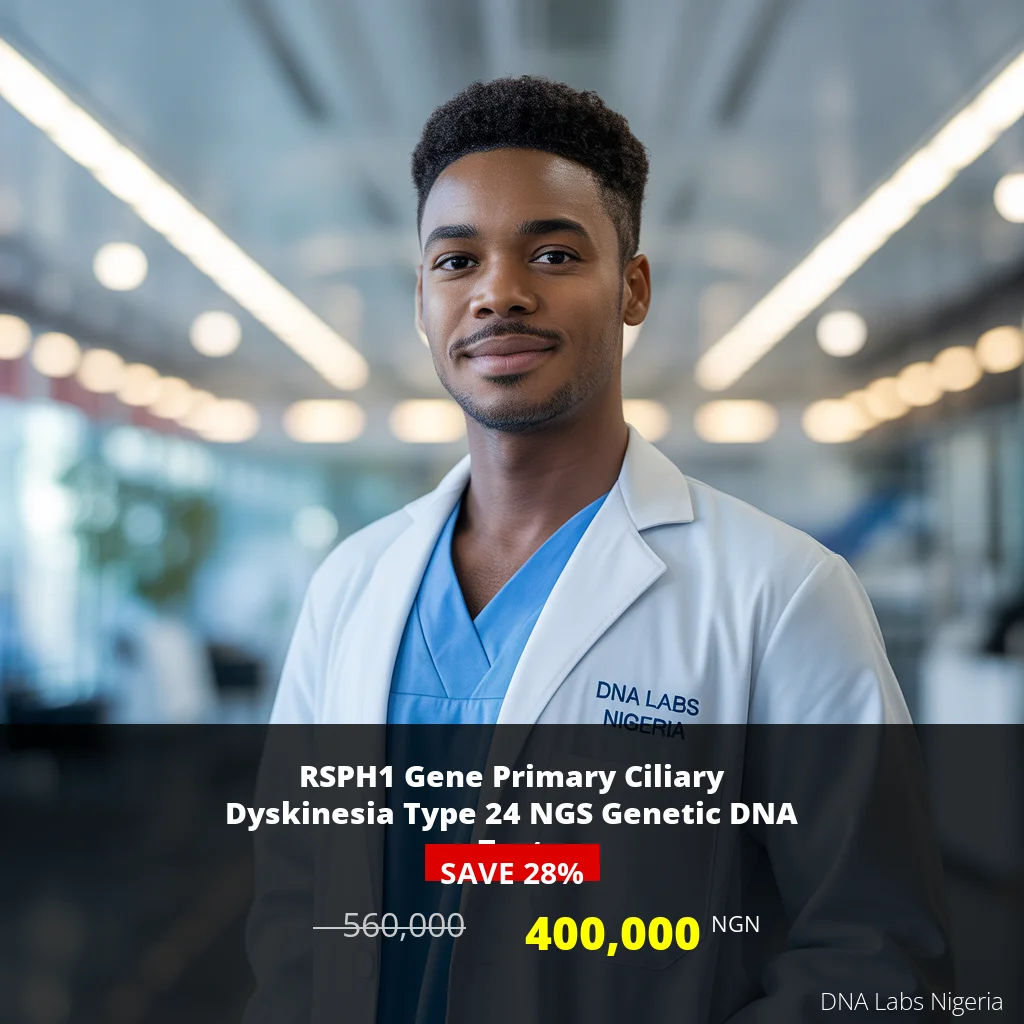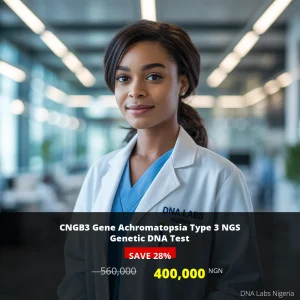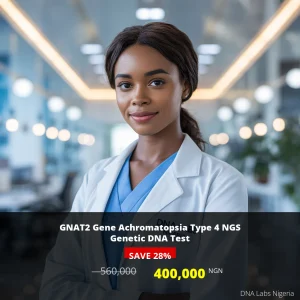RSPH1 Gene Primary Ciliary Dyskinesia Type 24 NGS Genetic DNA Test
The RSPH1 Gene Primary Ciliary Dyskinesia Type 24 NGS Genetic DNA Test is a cutting-edge diagnostic tool designed to identify genetic mutations associated with primary ciliary dyskinesia (PCD), a condition that affects the function of cilia in the respiratory tract. This test is crucial for patients experiencing recurrent respiratory infections, chronic sinusitis, or other ear, nose, and throat disorders.
What the Test Measures/Detects
This genetic test specifically analyzes the RSPH1 gene to detect mutations that may lead to impaired ciliary function. By employing Next Generation Sequencing (NGS) technology, the test provides a comprehensive assessment of the genetic factors involved in PCD.
Who Should Consider This Test
Patients with the following symptoms or risk factors should consider the RSPH1 Gene Primary Ciliary Dyskinesia Type 24 NGS Genetic DNA Test:
- Recurrent respiratory infections
- Chronic sinusitis
- Infertility in males
- Congenital heart defects
Benefits of Taking the Test
Taking the RSPH1 Gene test offers numerous benefits, including:
- Accurate identification of genetic causes of respiratory issues
- Guidance for treatment options and management of symptoms
- Informed family planning and genetic counseling for affected families
Understanding Your Results
Results from the RSPH1 Gene Primary Ciliary Dyskinesia Type 24 NGS Genetic DNA Test will be provided in a clear and detailed format. Your healthcare provider will help interpret the results and discuss the next steps based on your findings.
Test Name and Price
| Test Name | Discount Price | Regular Price |
|---|---|---|
| RSPH1 Gene Primary Ciliary Dyskinesia Type 24 NGS Genetic DNA Test | 400,000 NGN | 560,000 NGN |
Book the Test
To take the RSPH1 Gene Primary Ciliary Dyskinesia Type 24 NGS Genetic DNA Test, please contact us at +2348110567037. Our team is ready to assist you with booking your appointment and answering any questions you may have.
Turnaround time for results is approximately 3 to 4 weeks, and the sample type required can be blood, extracted DNA, or one drop of blood on an FTA card. Prior to the test, a clinical history and genetic counseling session are recommended to ensure proper understanding and preparation.







